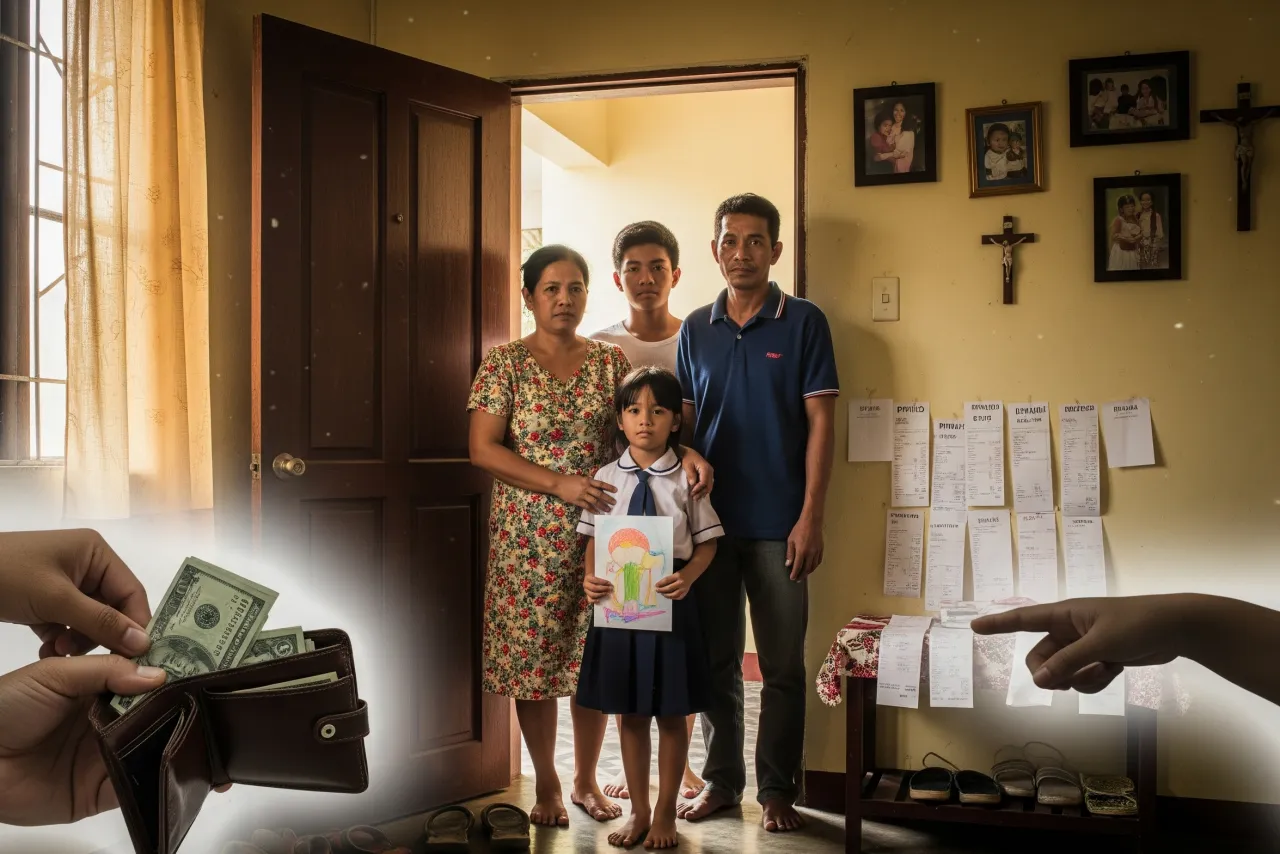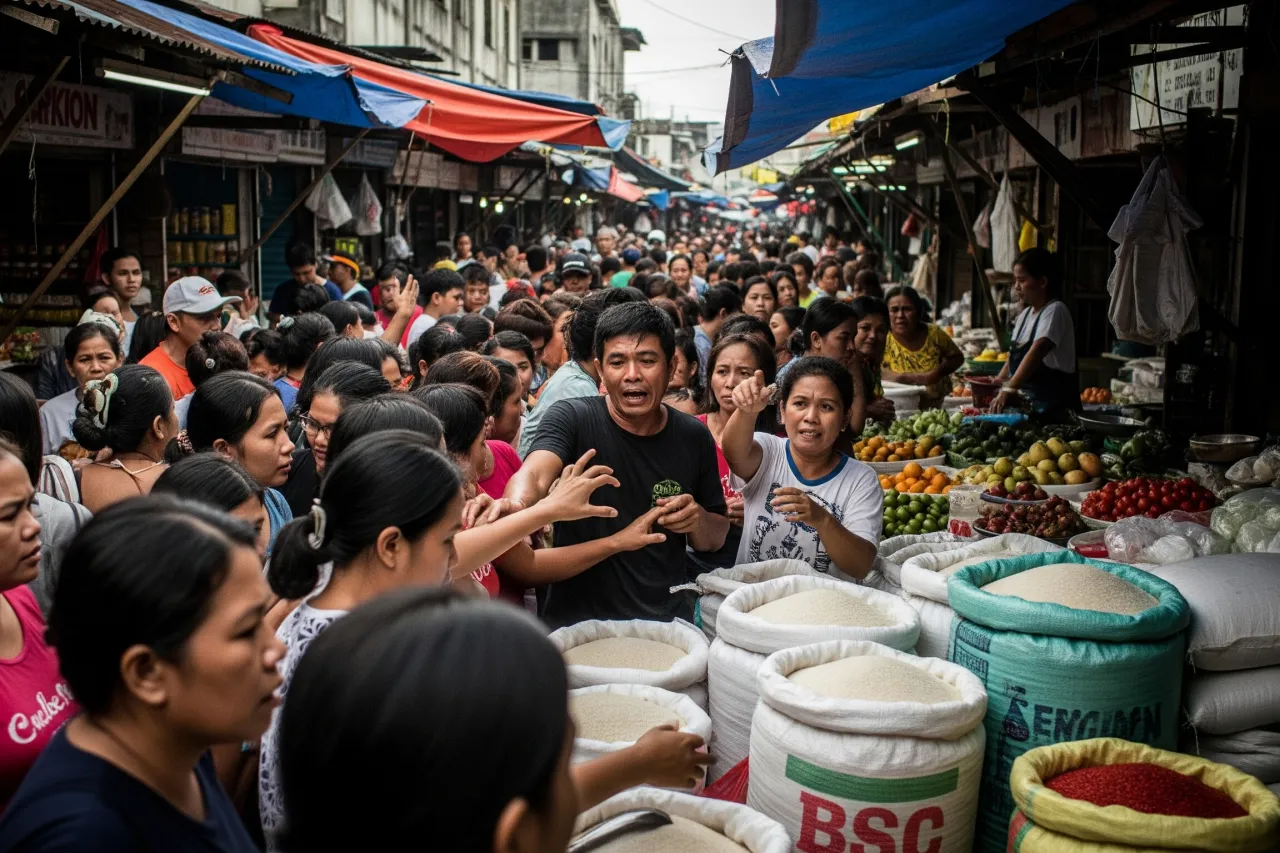💔 The Smile That Hides a Thousand Burdens: Is Our Hospitality Hurting Us?
Filipino hospitality is world-famous. It’s a source of national pride, a trait we wear like a badge of honor. We open our homes, our tables, and our hearts to guests, whether they are family, friends, or even strangers. The phrase “Kain muna tayo!” (Let’s eat first!) is more than an invitation; it’s a declaration of our generous spirit. But what happens when that generosity comes at a steep price? What is the hidden cost of Filipino hospitality that we rarely talk about?
- 💔 The Smile That Hides a Thousand Burdens: Is Our Hospitality Hurting Us?
- 💰 The Financial Strain: A Feast on a Barebones Budget
- 😩 The Emotional and Mental Toll: The Endless Show of “Okay Lang”
- 🤝 The “Utang na Loob” and “Hiya” Pressure Cooker
- 🤔 FAQs about Filipino Hospitality
- 🗝️ Redefining Hospitality: Setting Boundaries for a Healthier Culture
Beneath the warm smiles and overflowing platters, a different story is often unfolding—one of emotional and financial strain, social pressure, and a reluctance to say “no.” It’s a silent struggle that plays out in countless homes across the Philippines, where the fear of being seen as rude or “un-Filipino” outweighs the need to set healthy boundaries. This article isn’t about shaming our culture; it’s about exposing the heavy burden of an unwritten social contract that demands we give until it hurts.
💰 The Financial Strain: A Feast on a Barebones Budget
The most immediate and tangible cost of our legendary hospitality is often financial. For a Filipino family, especially those living on a modest income, a single unannounced visitor or a long-staying guest can throw a household budget into chaos.
The Drama: Imagine a family carefully budgeting for the week’s groceries, only for a relative from the province to arrive without warning, planning to stay “for a few days.” The hosts, driven by hiya (shame) and a sense of obligation, scramble to buy extra food, prepare special meals, and ensure their guest is comfortable, even if it means dipping into savings or, worse, going into debt. The few days turn into a few weeks. The family’s children may have to skip their school allowance or go without something they need because the household’s limited resources have been re-routed to accommodate the guest. The constant pressure to be a gracious host, even when it’s financially impossible, is a quiet but brutal reality.
- Unexpected Expenses: Unannounced guests force families to spend extra money on food, electricity, and water.
- Delayed Payments: Funds for bills, rent, or school fees are often diverted to cover hosting costs.
- Perpetuating a Cycle: The “open-door” policy can be exploited, with guests overstaying their welcome and contributing to the host’s financial struggles.
For many, the fear of losing face or being the subject of family gossip is a more powerful motivator than their own financial stability. It’s a heavy emotional tax paid for the sake of appearances.
😩 The Emotional and Mental Toll: The Endless Show of “Okay Lang”
Beyond the money, there is a significant emotional cost to this brand of hospitality. The expectation to always be a perfect host creates a constant state of anxiety and emotional labor.
The Drama: A host might be physically and mentally exhausted from a long day at work, but the arrival of guests means they must put on a show of enthusiasm and energy. They have to cook, clean, serve, and engage in conversation, all while suppressing their own feelings of fatigue or stress. The Filipino phrase “Okay lang” (It’s okay) becomes a default response, a lie told to protect the guest’s feelings at the expense of the host’s well-being. This can lead to resentment, burnout, and a feeling of being taken for granted, especially when guests show a lack of consideration for their host’s time and resources. This emotional burden is invisible, but its effects are real and damaging.
- Emotional Labor: Hosts are expected to manage their own emotions while catering to the needs of guests, often leading to burnout.
- Suppressed Feelings: The pressure to appear happy and welcoming prevents hosts from expressing their true feelings or setting boundaries.
- Resentment: A lack of reciprocity or consideration from guests can breed silent resentment and strain relationships.
This hospitality, once a beautiful expression of generosity, can become a performance, where the hosts are actors playing a role they can no longer afford to maintain.
🤝 The “Utang na Loob” and “Hiya” Pressure Cooker
Our hospitality is not a simple act of kindness; it’s deeply intertwined with two other powerful Filipino customs: utang na loob (debt of gratitude) and hiya (shame).
The Drama: The obligation to be a good host is often a form of utang na loob repayment. A family might feel they have to accommodate a distant relative because that relative once helped them in the past. This creates a cycle where kindness is not a free gift, but a down payment on a future obligation. Similarly, hiya plays a huge role. The shame of being labeled “kuripot” (stingy) or “walang hiya” (shameless) is a potent deterrent to saying “no.” This social pressure ensures that people continue to overextend themselves, even when they know it’s harming them.
It’s a pressure cooker of social expectations. You’re expected to open your doors to everyone, to feed them, to entertain them, and to do it with a smile, all while carrying the emotional and financial weight in silence.
🤔 FAQs about Filipino Hospitality
Q1: Is being hospitable a bad thing? A: No, the core of hospitality is a wonderful trait. The problem lies in the extremes—the inability to set boundaries, the financial strain, and the emotional toll that comes from feeling obligated to be hospitable, even when you can’t afford it.
Q2: How can we change this custom without being rude? A: Change starts with communication. It’s about a shift in mindset—from seeing hospitality as an obligation to seeing it as a choice. We can still be kind and generous while also communicating our limitations respectfully.
Q3: Is this a problem for all Filipinos? A: The degree varies, but the underlying cultural pressure is widespread. It is particularly difficult for low-income families and for those who have relatives who may take advantage of the tradition.
🗝️ Redefining Hospitality: Setting Boundaries for a Healthier Culture
The solution isn’t to stop being hospitable. It’s to redefine what it means. It’s about building a culture where it’s okay to say, “I’d love to have you, but I’m not in a position to host right now.” It’s about prioritizing our own well-being and financial health without the fear of social judgment. Let’s move towards a form of hospitality that is genuine, reciprocal, and—most importantly—sustainable. A kind welcome should never have to come at the cost of our own peace and stability.
What do you think? How have you navigated the pressures of Filipino hospitality? Share your thoughts below. 👇








